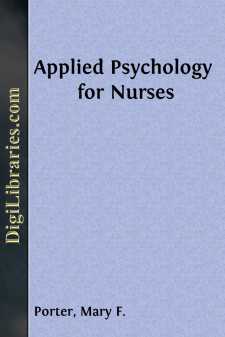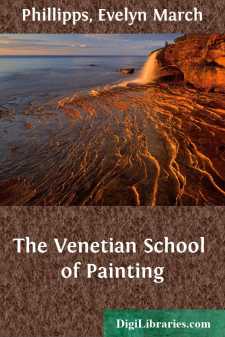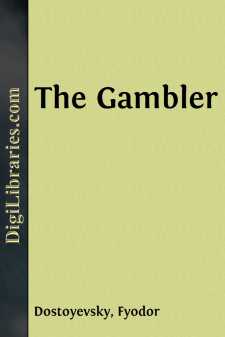Categories
- Antiques & Collectibles 13
- Architecture 36
- Art 48
- Bibles 22
- Biography & Autobiography 813
- Body, Mind & Spirit 142
- Business & Economics 28
- Children's Books 17
- Children's Fiction 14
- Computers 4
- Cooking 94
- Crafts & Hobbies 4
- Drama 346
- Education 46
- Family & Relationships 57
- Fiction 11829
- Games 19
- Gardening 17
- Health & Fitness 34
- History 1377
- House & Home 1
- Humor 147
- Juvenile Fiction 1873
- Juvenile Nonfiction 202
- Language Arts & Disciplines 88
- Law 16
- Literary Collections 686
- Literary Criticism 179
- Mathematics 13
- Medical 41
- Music 40
- Nature 179
- Non-Classifiable 1768
- Performing Arts 7
- Periodicals 1453
- Philosophy 64
- Photography 2
- Poetry 896
- Political Science 203
- Psychology 42
- Reference 154
- Religion 513
- Science 126
- Self-Help 84
- Social Science 81
- Sports & Recreation 34
- Study Aids 3
- Technology & Engineering 59
- Transportation 23
- Travel 463
- True Crime 29
Sort by:
by:
Nikola Tesla
Biographical Sketch of Nikola Tesla. While a large portion of the European family has been surging westward during the last three or four hundred years, settling the vast continents of America, another, but smaller, portion has been doing frontier work in the Old World, protecting the rear by beating back the "unspeakable Turk" and reclaiming gradually the fair lands that endure the curse of...
more...
by:
Mary F. Porter
CHAPTER IWHAT IS PSYCHOLOGY? Wise men study the sciences which deal with the origins and development of animal life, with the structure of the cells, with the effect of various diseases upon the tissues and fluids of the body; they study the causes of the reactions of the body cells to disease germs, and search for the origin and means of extermination of these enemies to health. They study the laws of...
more...
Part First—THE SPIRITUAL LIFE I. How Spiritual Life is Acquired Spiritual life is acquired solely by a life according to the commandments in the Word. These commandments are given in summary in the Decalogue, namely, Thou shalt not commit adultery, Thou shalt not steal, Thou shalt not kill, Thou shalt not bear false witness, Thou shalt not covet the goods of others. These commandments are the...
more...
by:
Harry Snyder
CHAPTER I GENERAL COMPOSITION OF FOODS 1. Water.—All foods contain water. Vegetables in their natural condition contain large amounts, often 95 per cent, while in meats there is from 40 to 60 per cent or more. Prepared cereal products, as flour, corn meal, and oatmeal, which are apparently dry, have from 7 to 14 per cent. In general the amount of water in a food varies with the mechanical structure...
more...
CHAPTER I Venetian painting in its prime differs altogether in character from that of every other part of Italy. The Venetian is the most marked and recognisable of all the schools; its singularity is such that a novice in art can easily, in a miscellaneous collection, sort out the works belonging to it, and added to this unique character is the position it occupies in the domain of art. Venice alone...
more...
GOD OUR SHEPHERD The twenty-third Psalm seems to break in two at the end of the fourth verse. The first four verses clearly reflect a pastoral scene; the fifth appears to carry us off, without warning, to very different associations. This, however, is only in appearance. The last two verses are as pastoral as the first four. If these show us the shepherd with his sheep upon the pasture, those follow...
more...
by:
Thornton Hall
CHAPTER I "It was to a noise like thunder, and close clasped in a soldier's embrace, that Catherine I. made her first appearance in Russian history." History, indeed, contains few chapters more strange, more seemingly impossible, than this which tells the story of the maid-of-all-work—the red-armed, illiterate peasant-girl who, without any dower of beauty or charm, won the idolatry of an...
more...
by:
Edward Burbidge
THE KING’S HERALD.“On Jordan’s banks the Baptist’s cryAnnounces that the Lord is nigh;Awake and hearken, for he bringsGlad tidings of the King....” When the Saviour of the world was about to enter upon His public ministry, the Jewish nation was startled with the cry, “The Kingdom of Heaven is at hand” (S. Matt. iii. 2). Such was God’s call to His people of old time, to prepare...
more...
At length I returned from two weeks leave of absence to find that my patrons had arrived three days ago in Roulettenberg. I received from them a welcome quite different to that which I had expected. The General eyed me coldly, greeted me in rather haughty fashion, and dismissed me to pay my respects to his sister. It was clear that from SOMEWHERE money had been acquired. I thought I could even detect a...
more...











